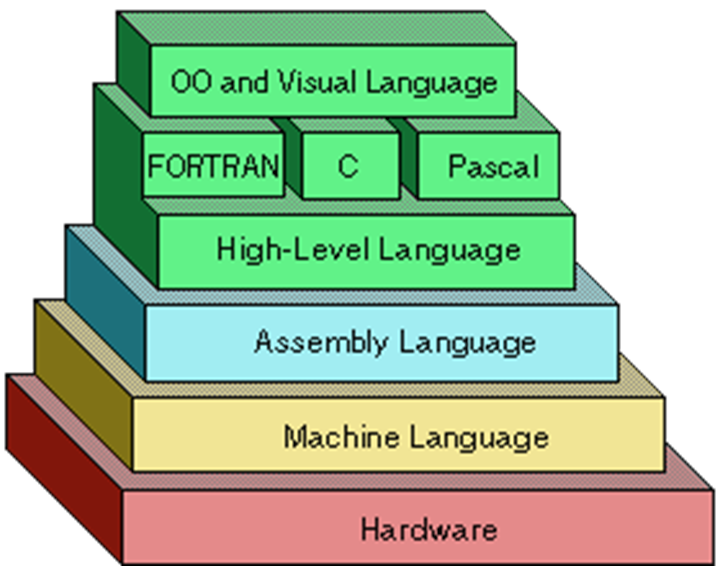BLOG #16. “To Be Left To Our Own Devices (sic!)?... We Probably Should”
My recent quick re-appearance at the player.ru portable audio forum to answer a couple of questions regarding my stacked HiFiMan “HM-801” mod experiment (see BLOG #15) brought back my already faded impressions from encountering a typical Internet forum community reaction to anything off-its-beaten track of endless discussions of widely available commercial products.This reaction happened to be the same one I routinely experienced while getting comments on my own column which I’ve been writing from 2013 to 2015 for another audio forum - the soundex.ru.
The last forum “encounter” coincided with reading the follow passage from a book called “The Organized Mind” by Daniel J. Levitin.
That excerpt was about “a click” in your brain which can sometimes to happen after a long-term accumulation of things in your “intellectual junk-drawer” (p. 382-383):
“[The “click”] is usually obvious when you’re talking to somebody a level above you, because they see lots of things instantly when those things take considerable work for you to figure out. These are good people to learn from, because they remember what it’s like to struggle in the place where you’re struggling, but the things they do still make sense from your perspective (you just couldn’t do them yourself).
Talking to somebody two or more levels above you is a different story. They’re barely speaking the same language, and it’s almost impossible to imagine that you could ever know what they know. You can still learn from them, if you don’t get discouraged, but the things they want to teach you seem really philosophical, and you don’t think they’ll help you – but for some reason, they do.
Somebody three levels above is actually speaking a different language. They probably seem less impressive to you than the person two levels above, because most of what they’re thinking about is completely invisible to you. From where you are, it’s not possible to imagine what they think about, or why. You might think you can, but this is only because they know how to tell entertaining stories. Any one of these stories probably contains enough wisdom to get you halfway to your next level if you put in enough time thinking about it (the bold face is mine- M.K.)”
Unfortunately, with an attention span of a few seconds which take to read superficially a complete post, the typical audio forum dwellers don’t think in the above terms.
A quasi-democracy at the sites creates a false sense of equality, which’s got two sides of the coin: yes, theoretically speaking, it can help to obtain the true knowledge from the people who do know, but at the same time, practically speaking, it’s a toxic habitat for all sorts of ignorant people and evil-doers to propagate tons and tons of either deliberate, or not deliberate, “half-truths” and utter lies, all done with their “Third Coming” pretensions.
In that respect, as the mass marketers can have a direct access to the steering wheel of the forum discussions and use it as a tool to sale their wares, for unorthodox and uncompromised products, especially if they rock the boat of the current status quo at the site, that steering wheel can become a tool to work against such “underdogs”, a tool to avoid seeing them even at the horizon line of suchlike forums.
In other words, as an information pipeline, an Internet forum is a link in the whole chain - from a manufacturer to the consumer - where each link’s “inner qualities” should fully match not only each other, but also the inner qualities and the pedigree of a product, and if there is a mismatch between them, then the pipeline would become constipated and would not pass the “strange” information at all.
From such “underdogs’” perspective, there is no difference in the uppermost priority for both the audio forum administrators, and the political “powers that be”, as their common main priority is to preserve the current status quo.
That’s why you can take a very famous political quote from Mark Twain (pic. 2) –
- “If voting would made any difference they wouldn’t let us do it” –,
slightly adapt it, and the modified quote would completely correspond to the general trend at all the commercial audio forums, which, in a way, are no more than a set of election booths and a corresponding infrastructure:
-“If forum discussions would made any difference they wouldn’t let us do it”.
You need a proof?
Look no further than the fate of the IEM market, where after many terabytes of “flood” at the Internet forums the venerable 30+year old Etymotic Research ER-4S are still “the kings of the road”. What have the whole earphones industry been doing all these years?! And how is it possible that exactly the same Consumer Electronics product is still in production since mid-80-ies?! (Yes, I could pose the same question about many other things, including, say, the venerable Vandersteen Model 2, but the in the latter case, at least, it went through several modifications, while ER-4S is still exactly the same product).
I am not sure what Mark Twain meant by “they” in his original quote, but in the modified one it looks as “they” is not so much about some proponents of conspiracies and rigid class structure, as “they” is more about the huge inertia of the “grass roots”.
The Internet forums’ pseudo-democracy means that you should use a common “language”, but from that Daniel Levitin’s quote above it follows that if you want to get up to the next level you should stop using Internet-forum “Pidgin English”, and resort to a different “language”, based on a different attitude towards each other, different goals, different concepts, different ideas and different approaches.
In the mean time, those whose interest is vested in preserving the status quo would try to stop anybody to even to try to learn this new “language”, let alone to formulate with it some new ideas.
To give you another example, a peace of audio gear can be discussed in regular terms focused on some specific product’s “external” properties, but also, it can be discussed, say,… in terms of the cars the manufacturer personnel is driving.
Incidentally, a few years ago I saw an ad, placed by an outstanding loudspeaker manufacturer Magnepan in “The Absol!te Sound” magazine, which touted their frugality with a text that stated that their general sales manager is driving a Ford car with 400, 000 miles on its speedometer.
What does such a frugality prove? It proves that more money spent by the customers go into the products instead of supporting a manufacturer’s excessive life style.
Is such an info is relevant? I think it is.
Do you often see suchlike discussions on audio forums? I doubt.
Instead, an average audio forum dweller’s attention is deliberately focused on a brand of a capacitor used in the speaker’s crossover network.
Which piece of information is more important to know?
To me, it’s obvious that if “an apple comes from an apple tree”, then all sorts of “apple tree’s” “inner qualities” matter much more than a speckle on surface of its apple.
While studying theoretical and experimental physics for six years at the Moscow Institute of Physics and Engineering I had several chances to meet, at formal and informal settings, some outstanding physicists, including our dean, Nobel Prize winner Nikolai Basov, and to have some conversations with them.
They never spoke with us directly about some specific “physics”, as it was apparently useless due to the fact that we, at the time, didn’t master their “third level” language yet. They usually spoke about things that, on the surface, were insignificant and purely entertaining: what were their first job assignments after the graduation, about their “behind the Iron Curtain” travel, etc.
But a right question for the audience could instigate an interesting specific discussion, when the most important factor in that instigation was a feeling of admiration from their listeners.
Now, let’s imagine for a second, that we would had looked at these luminaries the way a typical audio forum dweller would look at one another; relentlessly seeking a reason, on the opposite, to shut each other down, as though they treat the opponent’s spent forum kilobytes as their own precious property.
First, what those luminaries had got to say would have looked very banal, second, that subject matter would have seamed totally irrelevant, and, third, with no sparks flying from the audience, the conversation, indeed, would have been totally wasted.
The same way, most of my articles and blogs, where I would digress to the subjects of history, socio-politics, or, say, cigars, were attacked due to their alleged off-topic subject matter.
One of the accusations has always been that I am a pure theoretician, but the forum visitors need mostly practical and concrete advises, right there and then.
Yes, I am not an audio engineer, but I’ve spent 25 years in audio professionally, and my results in the field were achieved the same way as at my physics faculty in the Institute: by not shutting them down, but by learning all the time a “new level language” from those who speak it.
So I can move up in my endeavors to a higher level.
All the tasks in audio, of course, are eventually translated in a “Machine Language” (see the computer analogy on the attached pic. 3).
But for an average audio enthusiast a hardware language of dealing with them is a horrendously daunting proposition.
It’s much more productive, in their case, to resort to some higher level “languages” which can “code” some relevant algorithms of common sense, emotional intelligence and lucid analogies.
That’s why most of our own StereoPravda SPearphone current customers are not hardware “buffs”, we do not even try to appeal to our potential customers with a “hardware” language, as they, as a rule, don’t even speak it.
And that’s why, up until now, people who speak only a “hardware” language don’t, really, demonstrate that they get the essence of our solutions.
If I think, in terms of the outcome I’ve got, about the time and effort which I would have spent chatting at the audio forums, and the results I would have got from “staying” there, versus the results I have got with the same time and effort left, literally, to my own devices, thank God, that I even didn’t have to make any initial decisions in terms of what to choose.
Because the conceptual plan for my portable audio endeavor from the very beginning was based more on mastering my next level “language” than anything else: it was one of the lessons that I did learn at my Institute.
As the saying goes, “it’s useless to come to the stranger monastery with your own Charter”.
Not only because the monastery’s Charter, accordingly, is written in its own “language”, but also because the codes of behavior, the scope of accepted ideas, the common goals, and the means of knowledge retrieval and accumulation are rigidly stated in it.
At the same time, inside that “monastery” it’s not enough just to have a faith that, out of blue, something even more magnificent will happen, and you’ll be taken automatically to a higher level.
From my own experiences it follows that, on the opposite, for those, who want to move up the ladder of their personal accomplishments, I see no reason in either to join a “monastery”, or, even more so, to continue to swarm there with the pack (pic. 1).
As Ralph Waldo Emerson put it:
- “To be yourself in a world that is constantly trying to make you something else is the greatest accomplishment”.
Therefore, instead of chatting endlessly about the same things over and over again in one of these "monasteries" bowing to their Charters, the only way up is to stay on your own refining your skills of “the next level language”.
And to accomplish this, you should be “left to your own devices” (sic!- pic.4).
Where these “devices” are not just simple toys rented temporarily from the inventory of one of these “audio monasteries”, but are of a true and a permanent value…



30.05.2016 // Author: (Bigmisha) // Number of views: 1979
